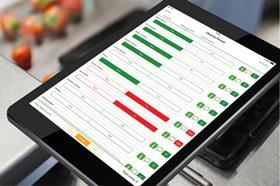
Muddy Boots Software has announced Greenlight Quality Control is the first cloud-based food safety and quality management software system to carry the HACCP Australia certification mark.
The certification mark provides re-assurance of the integrity and fail-safe characteristics of the solution for use in food businesses that operate a HACCP-based food safety programme.
The solution is designed to help simplify the complexities of managing safe food, product quality and compliance across entire operations.
“Muddy Boots’ Greenlight Quality Controlimpressed our evaluation team with its ability to handle complex food safety system requirements within a simple, user-friendly interface,” explained Clive Withinshaw, director of HACCP International.
The solution delivers a single data set in real-time, providing a clear picture of operations and inefficiencies and enabling timely decisions based on accurate and up to the minute information.
Muddy Boots Software is already in use by top tier retailers and suppliers across the globe, capturing over 19m checks for customers in quality control on products and facilities. Working with their customers, Muddy Boots identified a need for a single automated system to help businesses manage the abundance of industry requirements necessary to produce safe, legal and high-quality food products.
“Our solution helps food manufacturers and suppliers at every level, from intake of raw materials to storage, sanitation procedures and packaging through to labelling and shipping of finished goods,” said Jason Considine, general manager of Muddy Boots Software Australia & New Zealand.
“It helps streamline the day-to-day tasks so food producers can focus on what they do best.”
Considine said the solution’s ability to facilitate seamless two-way communication flow between any members of the supply chain was one of the main advantages that sets the Muddy Boots solution apart.
“For instance, tasks can be scheduled for a given time or frequency and operators can be prompted to carry out these tasks,” he explained.
“Automatic alerts are sent to supervisors and managers on their mobile phones whenever inefficiencies occur, such as an incorrectly performed task, missed checks or failed measurements, allowing a quick response and management of the hazards before they become more damaging down the line.”



